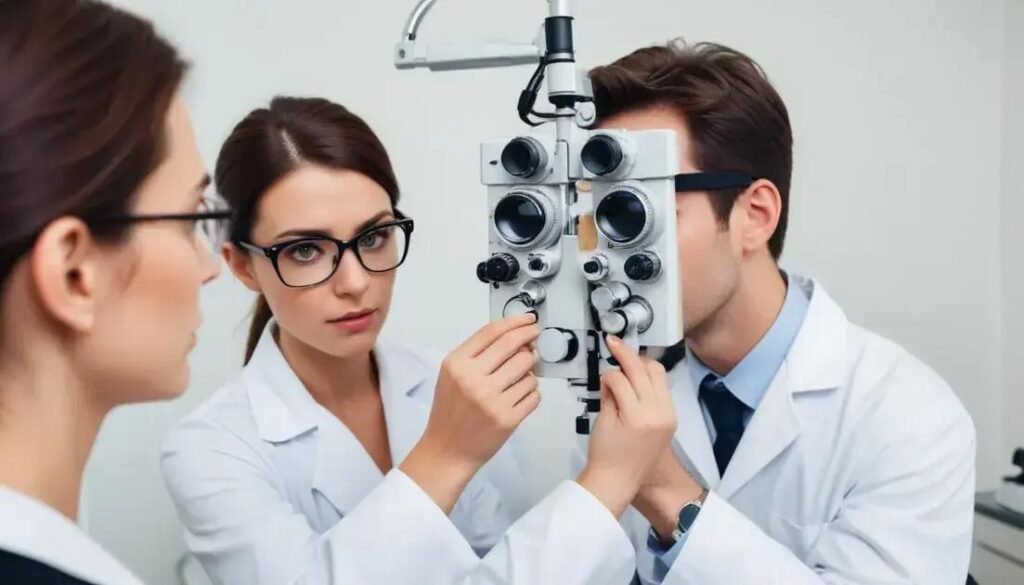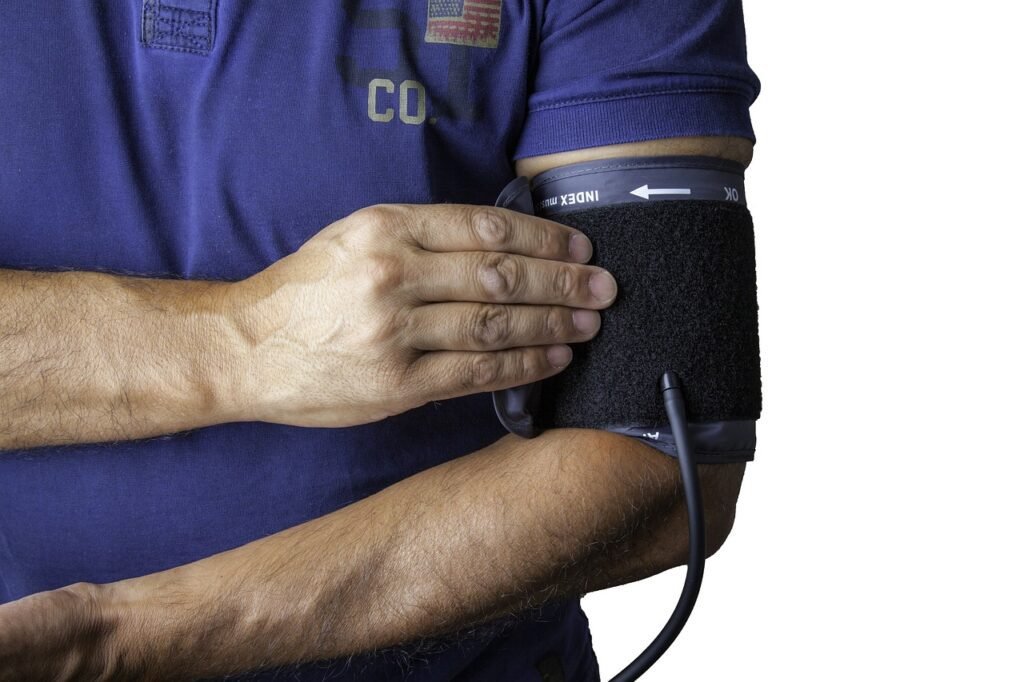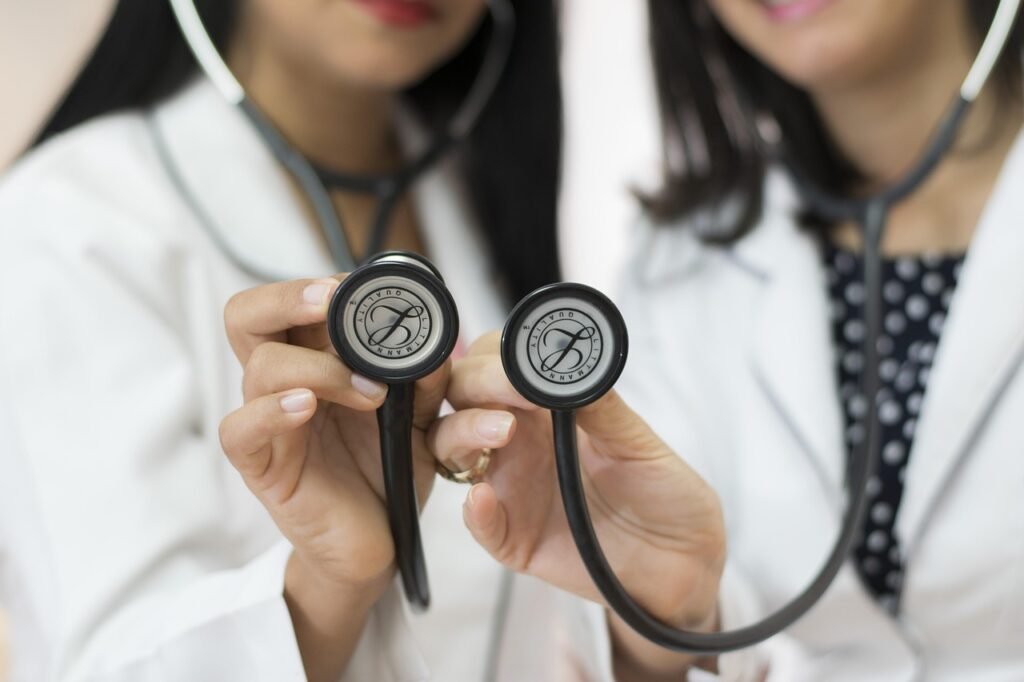High blood pressure, or arterial hypertension, is a condition characterized by increased blood pressure against the walls of the arteries. Although it often has no obvious symptoms, this condition can lead to serious complications, such as heart disease, stroke, and kidney failure. Therefore, it is essential to understand the symptoms of high blood pressure, its causes, ways to control it, and preventive measures.
Summary
High blood pressure is considered high when blood pressure readings are consistently above 140/90 mmHg. Understanding the signs, risks, and available treatments can save lives and significantly improve quality of life. In this article, we’ll explore the main symptoms of high blood pressure, its causes, how it affects different stages of life (including pregnancy), and what you can do to effectively control your blood pressure.
Explanatory video about the dangers of high blood pressure:
What are the symptoms of high blood pressure?
High blood pressure is often called the “silent killer” because many people with high blood pressure do not experience symptoms until the condition is advanced. However, some symptoms of high blood pressure can occur, especially when blood pressure levels reach very high levels.
The main symptoms include persistent headaches, dizziness, blurred vision and unexplained nosebleeds. These signs may be accompanied by palpitations, chest pain and difficulty breathing. A feeling of constant fatigue and mental confusion may also be observed in some cases.
It is essential to measure blood pressure regularly to detect changes before they cause organ damage. When blood pressure is measured and kept under control, the risk of complications from high blood pressure is significantly reduced.
Does high blood pressure cause headaches and dizziness?
Yes, headaches and dizziness are among the most noticeable symptoms of hypertension. Headaches caused by high blood pressure usually occur in the back of the head and can be more intense in the morning. Dizziness occurs due to decreased blood flow to the brain, resulting from changes in blood pressure levels.

Although not everyone with high blood pressure experiences these symptoms, they are common in cases of sudden increases in blood pressure. Therefore, any persistent episode of headache or dizziness should be evaluated by a health professional so that blood pressure can be measured and the cause investigated.
Does high blood pressure make you sleepy?
Excessive tiredness or drowsiness can be indirect signs of high blood pressure. This can occur due to overloading of the cardiovascular system, which compromises adequate oxygenation of the tissues. In addition, uncontrolled high blood pressure can affect sleep quality and cause fatigue during the day.
Associated problems, such as sleep apnea, are also related to high blood pressure. Drowsiness can be a warning sign that the body is under stress. stress due to increased blood pressure. If you feel constant fatigue, it is important to see a healthcare professional to have your blood pressure checked and any necessary tests performed.
Does high blood pressure affect the eyes?
Yes. A hypertension Arterial hypertension can cause damage to the blood vessels in the retina, a condition known as hypertensive retinopathy. This can lead to symptoms such as blurred vision, dark spots in the visual field, eye bleeding and, in severe cases, even vision loss.

These changes occur due to increased pressure in the walls of the ocular arteries, which reduces blood flow to the tissues of the eye. Keeping blood pressure under control is essential to maintaining eye health. People with high blood pressure should see an ophthalmologist regularly to monitor possible changes in their eyes.
High blood pressure: what can cause it?
The cause of high blood pressure is multifactorial. An unhealthy lifestyle, genetic factors, advanced age, obesity and a sedentary lifestyle are among the main risk factors. Excessive salt intake, alcohol consumption and smoking can also increase blood pressure.
Hormonal changes, kidney disease, and the use of certain medications are other possible causes. High blood pressure is more common in people with a family history of the condition, and the risk of high blood pressure increases with age. Identifying the factors that increase blood pressure is essential to preventing hypertension and its complications.
👉 High blood pressure is one of the main risk factors for heart problems. Also check out our complete guide with tips to prevent heart problems.
High blood pressure during pregnancy: what to know?
High blood pressure during pregnancy requires extra attention, as it may indicate the presence of preeclampsia, a serious condition that threatens the health of both mother and baby. High blood pressure during pregnancy can appear after the 20th week of gestation and is associated with symptoms such as swelling, headaches, blurred vision and proteinuria.

Prenatal monitoring is essential to detect any increase in blood pressure in a timely manner. High blood pressure during pregnancy may require rest, a controlled diet and, in some cases, the use of safe medications. Controlling blood pressure prevents complications such as premature birth, fetal growth restriction and placental abruption.
Is high blood pressure a symptom of pregnancy?
High blood pressure can occur during pregnancy, but it is not an early or common symptom of early pregnancy. In most cases, blood pressure tends to decrease in the first trimester. However, some pregnant women develop gestational hypertension or preeclampsia in the second or third trimester.
Therefore, high blood pressure should not be interpreted as an indication of pregnancy. The ideal is to carry out prenatal care and measure blood pressure regularly to monitor changes. Any increase in blood pressure should be discussed with the health professional responsible for monitoring the pregnancy.
High blood pressure: what could it be?
High blood pressure can be the result of a number of conditions, including poor lifestyle choices, chronic stress, obesity, kidney disease, and hormonal changes. In many cases, high blood pressure is idiopathic, meaning it has no identifiable cause. This form of hypertension is called essential hypertension.
Secondary high blood pressure, on the other hand, is caused by specific diseases, such as kidney problems or heart disorders. thyroid. Taking your medical history and performing laboratory and imaging tests can help determine the source of your high blood pressure. High blood pressure is diagnosed based on multiple blood pressure measurements over time.
At what point is blood pressure considered high?
According to the Brazilian guidelines for arterial hypertension, blood pressure is considered high when values exceed 140 mmHg of systolic pressure and/or 90 mmHg of diastolic pressure. Values between 120/80 mmHg and 139/89 mmHg are considered normal-altered or pre-hypertension.

Measuring blood pressure regularly is the best way to detect hypertension early. The use of validated devices and ambulatory blood pressure monitoring (ABPM) or home blood pressure measurement (HBPM) are recommended methods for confirming the diagnosis.
High blood pressure: what to do at the time?
If you have high blood pressure, it is important to stay calm. Sit in a quiet place, breathe deeply, and avoid immediate physical exertion. In some cases, drinking water can help relieve discomfort.
Avoid consuming salty foods or stimulants, such as coffee. If you are already taking medication to control your blood pressure, follow your doctor's advice. If symptoms persist or if you experience signs such as chest pain, shortness of breath or confusion, seek emergency care immediately.
How to lower high blood pressure naturally?
There are several ways to control blood pressure naturally. The first is to adopt a healthy lifestyle. This includes regular physical activity, such as walking, swimming or cycling, which helps improve circulation and strengthen the heart.
Diet is also a crucial factor. Reducing salt intake, avoiding processed foods, and increasing your intake of fruits, vegetables, and whole grains are all measures that help regulate blood pressure. Eating foods rich in potassium is also beneficial.
Additionally, managing stress through practices such as meditation, yoga, and deep breathing can help reduce blood pressure levels. Getting enough sleep and maintaining a healthy weight are also key to controlling blood pressure.
What to take to control blood pressure?
Treatment for high blood pressure may involve medication, which must always be prescribed by a healthcare professional. The main groups of medications include diuretics, ACE inhibitors, calcium channel blockers, and beta-blockers. These medications help reduce blood pressure in the arteries and protect the organs.

In addition to medications, teas such as hibiscus, garlic and lemon balm can be used to naturally control blood pressure, as long as their use is authorized by a doctor. Frequent monitoring with regular blood pressure measurements is essential to assess the effectiveness of the treatment and adjust the doses, if necessary.
Is there a cure for high blood pressure?
High blood pressure is a chronic disease that has no cure, but can be successfully controlled. Controlling high blood pressure requires commitment to treatment and permanent lifestyle changes. When blood pressure is kept within normal ranges, the risk of complications is significantly reduced.
The goal of treating high blood pressure is to keep blood pressure below 140/90 mmHg. This can be achieved with medication, a healthy diet, exercise, weight control, and quitting smoking and excessive alcohol consumption. Adherence to treatment is what guarantees the patient's quality of life.
Conclusion: How to deal with high blood pressure more safely
Dealing with high blood pressure requires information, prevention and ongoing care. High blood pressure is a chronic disease, but it is entirely possible to control it with proper treatment, healthy habits and regular medical monitoring.
Identifying symptoms early, measuring blood pressure regularly and following medical advice are the pillars for avoiding complications caused by high blood pressure. Adopting a healthy lifestyle is the best way to keep blood pressure levels within normal limits and improve your quality of life.
Summary: Key points about high blood pressure
- High blood pressure may not have symptoms, but headaches, dizziness and blurred vision are warning signs.
- Pressure is considered high from 140/90 mmHg.
- Measuring blood pressure frequently helps with prevention.
- Blood pressure control can be achieved through lifestyle changes and/or medication.
- High blood pressure can cause serious complications if left untreated.
- Hypertension during pregnancy requires care and monitoring.
- There is no cure, but there is control: with discipline, it is possible to have a healthy life even with high blood pressure.



